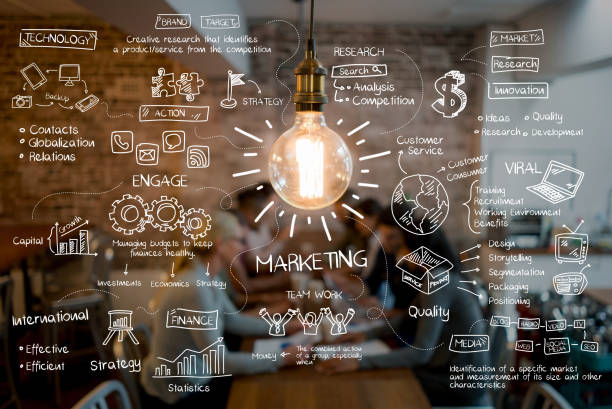
As the digital marketing landscape continues to evolve, staying ahead of trends is crucial for businesses looking to thrive in a competitive environment. In 2025, technology, consumer behavior, and algorithmic changes are converging to reshape how brands approach online marketing. From artificial intelligence to immersive content, here are ten trends every marketer should watch closely in the coming year.
1. AI Driven Personalization
Artificial intelligence is no longer just a buzzword; it’s a cornerstone of digital marketing. In 2025, expect hyper-personalization to become the norm. AI tools analyze consumer behavior in real-time, allowing brands to deliver tailored content, product recommendations, and dynamic pricing models that resonate with individual users. From email marketing campaigns to social media ads, personalization powered by AI will enhance user engagement and boost conversion rates like never before.
2. Voice Search Optimization
With smart speakers and voice assistants becoming household staples, optimizing for voice search is critical. Marketers need to focus on long-tail keywords and conversational phrases to align with how people naturally speak. The rise of voice commerce, where consumers purchase products through devices like Alexa or Google Assistant, will also push businesses to streamline their online shopping experiences and ensure their digital storefronts are voice-search friendly.
3. The Dominance of Video Content
Video marketing will continue its meteoric rise in 2025. Platforms like YouTube, TikTok, and Instagram Reels are driving massive engagement, making video an indispensable format. Short-form videos with clear, compelling narratives will dominate social media, while live streaming will enable brands to foster real-time interaction with audiences. Enhanced video SEO techniques, including optimized descriptions, keywords, and captions, will be crucial to ensuring visibility in this saturated medium.
4. The Expansion of Social Commerce
Social media platforms are transforming into full-fledged marketplaces. In 2025, social commerce will become even more integral to digital marketing strategies. Features like in-app shopping, shoppable posts, and streamlined payment gateways on platforms such as Instagram, Facebook, and Pinterest will reduce the friction between discovery and purchase. Marketers will need to focus on creating seamless buying journeys and leveraging user-generated content to build trust and drive sales.
5. The Rise of Micro-Influencers
Influencer marketing remains a powerful tool, but the spotlight is shifting from mega-influencers to micro- and nano-influencers. These creators, with smaller but highly engaged audiences, offer authenticity and relatability. Brands in 2025 will focus on building long-term partnerships with these influencers to foster deeper connections with niche audiences. This shift underscores the importance of authenticity in building trust and driving meaningful engagement in an oversaturated digital world.
6. Search Engine Algorithm Optimization
Search engine optimization (SEO) remains the backbone of digital marketing, but the rules of the game are changing. In 2025, Google’s algorithms will prioritize user experience more than ever, emphasizing page speed, mobile optimization, and Core Web Vitals. Additionally, the integration of AI tools like Google’s Gemini will make search queries more complex and intent-driven. Marketers must adapt by creating high-quality, evergreen content that answers user questions effectively while integrating semantic SEO strategies.
7. The Emergence of Web 3.0 Marketing
Web 3.0 technologies, including blockchain, decentralized applications (dApps), and cryptocurrencies, are gradually influencing digital marketing. In 2025, marketers will leverage these innovations to create transparent, secure, and immersive brand experiences. Blockchain, for instance, could be used to verify ad impressions, ensuring transparency in advertising. Meanwhile, the use of NFTs (non-fungible tokens) for brand loyalty programs and digital collectibles will foster unique engagement opportunities with tech-savvy consumers.
8. The Growth of Interactive Content
Interactive content is becoming a must-have for boosting engagement and capturing attention. From quizzes and polls to augmented reality (AR) experiences and gamified marketing strategies, brands will use interactive formats to stand out in a crowded digital landscape. In 2025, AR-powered virtual try-ons and immersive product demos will help e-commerce brands enhance the online shopping experience, while interactive infographics and calculators will increase dwell time and user interaction.
9. Privacy-First Marketing Strategies
With the increasing emphasis on data privacy and regulations like GDPR and CCPA, 2025 will see a rise in privacy-first marketing strategies. Brands will need to focus on building trust through transparent data practices and leveraging first-party data. The phasing out of third-party cookies will push marketers to invest in consent-driven data collection methods, such as surveys and email sign-ups, to create personalized marketing campaigns without compromising consumer trust.
10. Sustainability and Ethical Marketing
Consumers are becoming more conscious of the environmental and social impact of their purchases, and this awareness is influencing their choice of brands. In 2025, digital marketing campaigns that emphasize sustainability and corporate social responsibility will resonate more strongly with audiences. From eco-friendly packaging initiatives to supporting social causes, brands will need to authentically align their values with their messaging. This trend will also extend to digital advertising, where businesses may prioritize green hosting services and carbon-neutral ad delivery.
Conclusion
Digital marketing in 2025 is poised to be more dynamic, data-driven, and consumer-focused than ever before. By embracing emerging technologies, prioritizing user experience, and aligning with consumer values, businesses can stay ahead of the curve. Whether it’s adopting AI for hyper-personalization, optimizing for voice search, or integrating sustainability into marketing campaigns, the trends shaping the industry demand adaptability and innovation.
The key to success lies in staying informed, experimenting with new strategies, and being agile enough to pivot when needed. As technology continues to advance and consumer expectations evolve, those who anticipate and adapt to these trends will secure their place at the forefront of digital marketing.